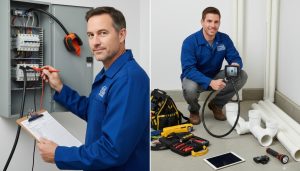Who contacts the lender to discharge the mortgage?
Who calls the lender to discharge the mortgage? You’ll be surprised how simple it is—and who actually does the work.
Quick Answer
The borrower or their lawyer/notary contacts the lender to start a mortgage discharge. In most real estate transactions, a lawyer or notary handles the payoff, obtains the discharge document from the lender, and registers the release with the land registry to clear the title.
Why this matters
A mortgage discharge (also called mortgage release) removes the lender’s legal claim on your property. Without it, you can’t show clear title, sell the home cleanly, or refinance. Missed steps create delays and extra costs. Know who does the work so you don’t lose time or money.

Who actually contacts the lender
- Borrower: If you’re paying off the mortgage manually, you can request a payoff statement and instruct the lender to prepare a discharge. You’ll need the lender’s exact payoff figure and their discharge instructions.
- Lawyer/Notary: In sales, refinancing, or when closing uses trust funds, the lawyer/notary typically handles everything. They request the discharge, confirm the payoff, and register the release.
- Mortgage Broker or Lender Representative: They facilitate information and prepare paperwork but rarely register discharges on title. The legal professional does the registration.
Keywords: mortgage discharge, discharge mortgage, mortgage release, clear title, mortgage lien, payoff statement, land registry, lawyer, notary.
Step-by-step: How the discharge process works
- Request a payoff statement from the lender. It shows the exact amount to clear the mortgage.
- Arrange payment. The borrower or closing lawyer sends funds to the lender.
- Lender issues a discharge document (or a direction to register a release). This is the legal proof the mortgage is paid.
- Lawyer/notary registers the discharge at the land registry or land titles office.
- Confirm clear title. The land registry returns proof that the lien is removed.
Timeframes vary. Payoff statements are usually valid for a short window. Registration can take days to weeks depending on the jurisdiction.
Common problems and how to avoid them
- Missing discharge: Make sure your lawyer confirms registration and obtains proof.
- Incorrect payoff figures: Always get a dated payoff statement in writing.
- Multiple liens: Ask for a title search to identify all mortgages and liens before closing.
Local note (Ontario/Canada)
In Ontario, the lawyer or title agent registers the discharge with the Land Registry Office or through electronic land registration. Costs include legal fees and registration fees.

Final: What to do next
Want this handled fast and without surprises? Work with a proven local expert who knows mortgages, liens, and the registration process inside out.
Contact Tony Sousa — Local Realtor and mortgage-liens specialist. Email: tony@sousasells.ca | Phone: 416-477-2620 | https://www.sousasells.ca
Call or email today. Get a clear payoff plan. Close cleanly.





















